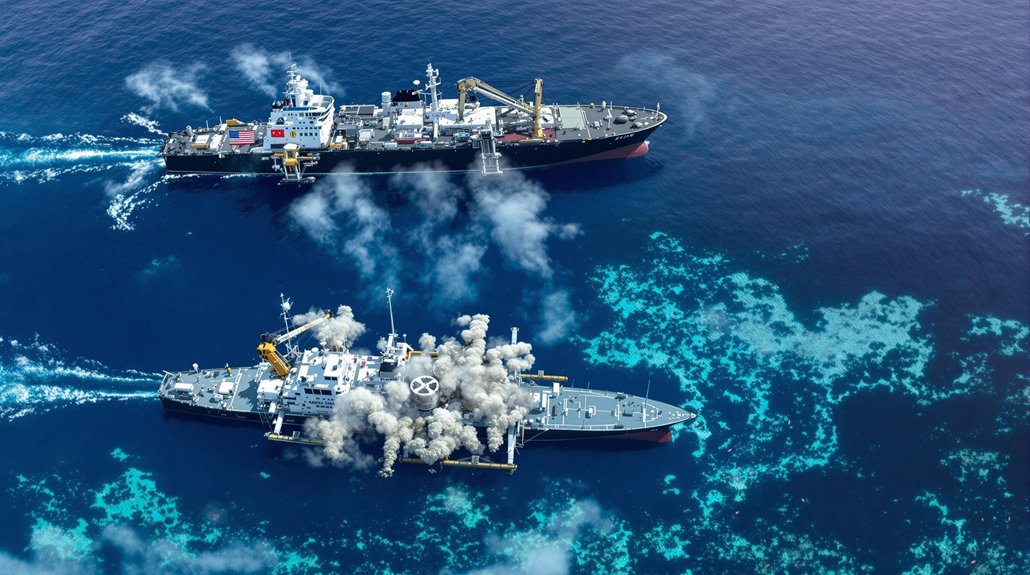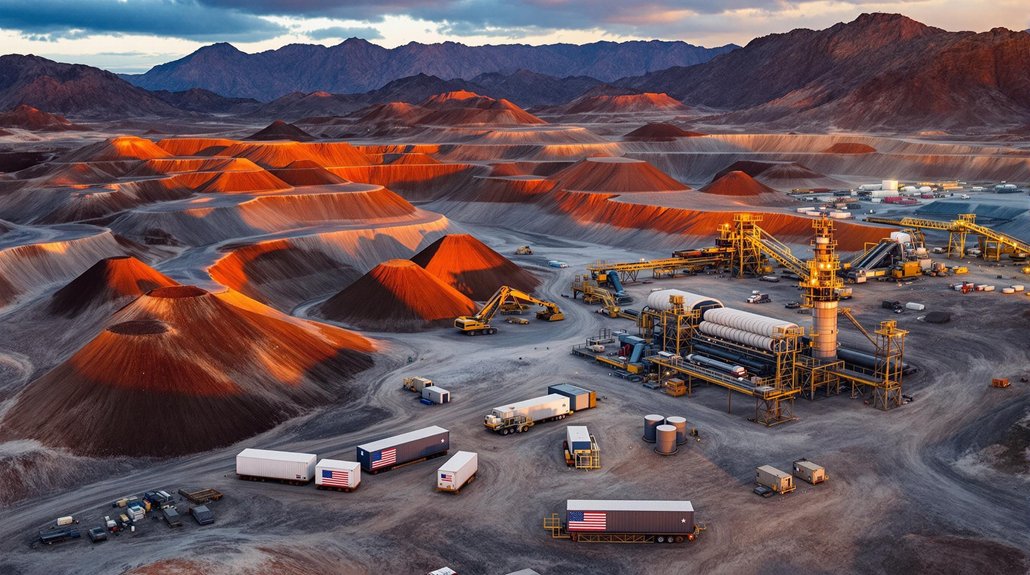China blasted Trump’s $300 billion deep-sea mining initiative as a “lawless power play.” Beijing officials called the executive order “selfish” and “hegemonic,” claiming it violates international maritime law. The clash intensifies as both superpowers compete for critical minerals essential for next-gen tech. China’s immediate response? Tightening rare earth metal exports. Meanwhile, environmental groups sound alarms about potential ecological devastation. The underwater resource war is just getting started.
While President Trump pushes forward with an aggressive plan to mine the ocean floor, Beijing isn’t having it. China has condemned the executive order as “selfish” and a blatant violation of international law. Not exactly a friendly exchange between the world’s two biggest economies.
The executive order aims to fast-track U.S. deep-sea mining for critical minerals used in battery technologies. Pretty ambitious stuff. With potential economic benefits of $300 billion over the next decade, it’s no wonder Trump’s administration is diving in headfirst. The plan could create up to 100,000 jobs too. Not too shabby.
But China’s not impressed. They’ve recently tightened their grip on rare earth metal exports, and now the U.S. is making moves to break free from that dependency. Classic geopolitical chess match. China claims the U.S. is disregarding international norms and harming collective interests. The statement explicitly characterized Trump’s action as a reflection of America’s hegemonic nature. As if they wouldn’t do the same thing if roles were reversed.
Environmental groups are freaking out, and maybe they should be. Deep-sea mining could wreak havoc on marine ecosystems. Scientists are strongly opposed, warning about irreversible damage to fragile underwater environments. The fishing industry isn’t thrilled either. Who wants toxic mining runoff with their tuna steak? With species extinction rates already at unprecedented levels, further habitat disruption could accelerate biodiversity loss in marine environments.
The legal complications are messy. The U.S. plan may conflict with the United Nations Convention on the Law of the Sea. The International Seabed Authority oversees mining in international waters, but Trump’s order aims to bypass these slowpokes. Mining beyond national jurisdiction? That’s where the lawyers start salivating.
Companies like The Metals Company are already lining up for a piece of the action. The executive order requires expedited review processes for mining licenses. Red tape, be gone!
Meanwhile, everyone’s wondering about the long-term ecological effects. The Trump administration’s focus is particularly on securing rare earth minerals which consist of 17 elements critical for modern technology manufacturing. They’re largely unknown. But when has a little uncertainty ever stopped humans from exploiting natural resources? The ocean floor’s treasures await. Environmental consequences? That’s tomorrow’s problem.
References
- https://www.eenews.net/articles/china-lashes-out-at-trumps-deep-sea-mining-order/
- https://gcaptain.com/trump-plans-order-to-enable-critical-metals-stockpiling/
- https://san.com/cc/trump-executive-order-to-expand-us-deep-sea-mining-condemned-by-china/
- https://essanews.com/trumps-plan-to-mine-seabed-metals-challenges-chinas-grip








